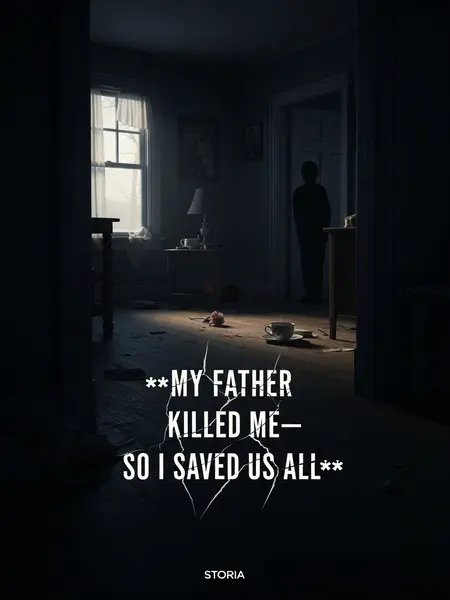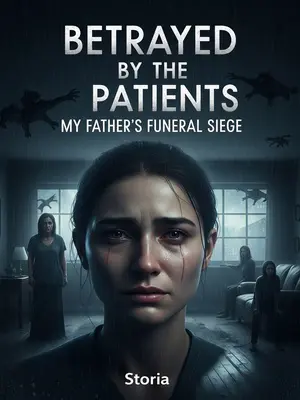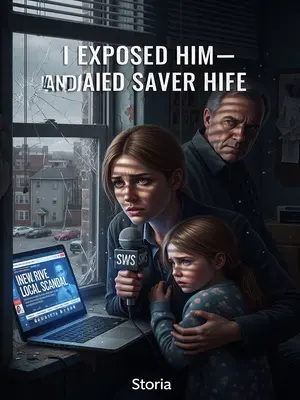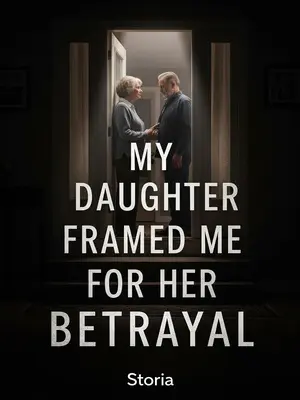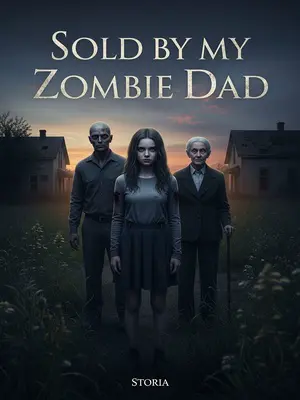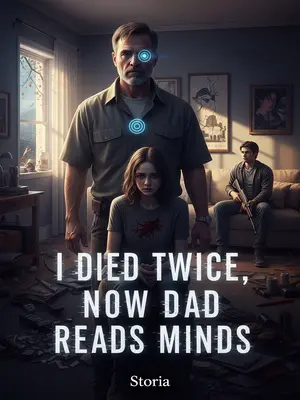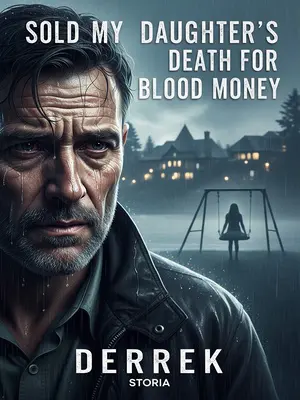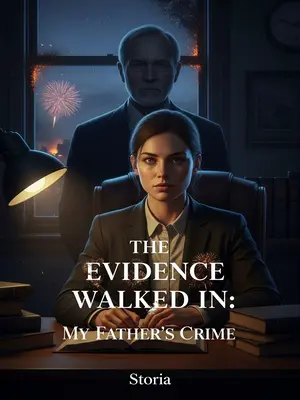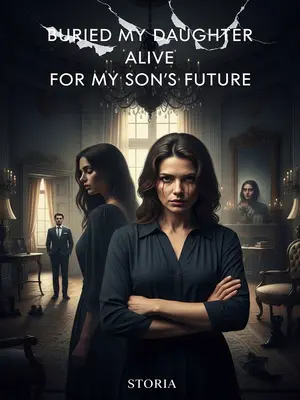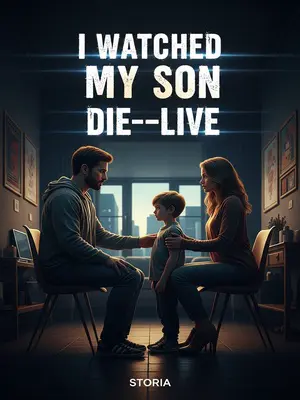Chapter 4: Turning the Tables on Fate
Having managed to save her, I couldn’t let Leonard drive her crazy. I was afraid she’d have another accident. I started watching her closely, making sure she took her medicine, making her tea just the way she liked it. I became her shadow, determined to keep her safe.
With my persuasion, my mother finally agreed to divorce Leonard. It took weeks of gentle coaxing, but eventually she saw reason. We filed the papers together, hand in hand. I felt a huge weight lift from my shoulders.
After the divorce, she immediately changed my name. We sat in the courthouse, filling out forms. I watched as she wrote ‘Emily Brooks’ in careful script. It felt like shedding old skin, stepping into a new life.
I took my mother’s surname and became Emily Brooks. I practiced signing my new name over and over, each loop and curve a tiny rebellion. For the first time, I felt like I belonged to someone who loved me.
To stay away from Leonard, my mother and I rented a place in a remote part of town. The apartment was small, but cozy. We painted the walls a soft blue, hung thrift store curtains, and made it ours. The neighbors kept to themselves, which suited us just fine.
For years, we lived frugally, and Leonard never paid a cent of child support. We clipped coupons, shopped at the dollar store, and learned to stretch a meal for days. My mother never complained—she just worked harder, determined to give me a better life. I admired her more than anyone.
This life continued until my third year of high school. I threw myself into my studies, determined to make every sacrifice worth it. My mom cheered me on from the sidelines, her pride shining brighter than any trophy.
I planned, as before, to take the entrance exam for the teachers’ college and work during holidays to ease my mother’s burden. I mapped out every detail—study schedules, part-time jobs, even the cheapest bus routes to campus. My dream was within reach. I was so close.
Unexpectedly, Leonard somehow found us. One rainy afternoon, I came home to find him standing in the hallway, dripping water onto the linoleum. My heart froze. The past had caught up to us. I felt like I was twelve years old again.
I later learned my mother, worried about my college expenses, quietly sued Leonard for back child support. During mediation, he followed her and found out where we lived. She’d tried to keep it secret, but Leonard was nothing if not persistent. The system wasn’t on our side, but my mother never gave up.
When I saw him at the door, I instinctively backed away, and he barged in. He shoved past me, tracking mud across the carpet. His eyes darted around, taking in every detail of our tiny apartment. I felt exposed, vulnerable.
He looked around our tiny living room greedily—I knew from his eyes he wasn’t here to pay support, but to ask for money: "You don’t even have the Walker name now, and your crazy mother still wants me to pay child support. Looks like you two are living well and aren’t short on money. How about you give me some first, let me make a comeback, and if I win, I’ll share with you!" His words dripped with sarcasm. I clenched my fists, fighting the urge to scream.
I didn’t dare reply. My voice caught in my throat. I just stared at the floor, wishing he’d vanish. My hands shook.
I still remembered the vicious look he had when he killed me in my past life. The memory flashed before my eyes—his hands around my neck, the hate in his eyes. My knees shook, but I stood my ground. I refused to let him win again.
He looked exactly the same now as he did then! Older, maybe, but just as cruel. Time hadn’t softened him—it had sharpened his edges. I felt a chill run down my spine.
For a moment, I hated and feared him, terrified the tragedy would repeat. I wanted to run, to hide, but I forced myself to stay. I wouldn’t let him see me break. Not this time.
Luckily, before he could do anything, my mother came home from work. She burst through the door, grocery bags in hand, and froze when she saw him. Her eyes narrowed, jaw set. I breathed a little easier.
Knowing he was there for money, she rushed into the bathroom, grabbed a mop, and started hitting him: "Did you ever raise my daughter for a day? Always saying you’re her father—then pay all the child support you owe! You shameless old thing!" She swung the mop like a sword, chasing him around the living room. He yelped, dodging left and right, cursing the whole time.
"Damn it, Susan Brooks, you crazy woman!" Leonard was chased out by my mother. He stumbled down the stairs, muttering threats. My mother slammed the door behind him, breathing hard. I wanted to cheer.
When she put the mop away, sweat and tears covered her face. I handed her a towel, wiping her cheeks gently. She smiled weakly, collapsing onto the couch. I sat beside her, holding her hand.
I wiped her face with a towel. Her skin was cool and damp. I pressed a kiss to her forehead, whispering, “We’re safe. He’s gone.”
She looked at me and cried silently. Tears streamed down her face, silent but fierce. I held her close, rocking her gently. I wanted to promise her it would never happen again.
I hugged her tightly. Her arms wrapped around me, strong despite everything. For a moment, we just breathed together, hearts beating in sync.
Thinking about my father’s ugly behavior, I realized I might die again. The fear crept in, cold and sharp. I couldn’t let history repeat itself—not for me, not for her. I needed to do something, anything, to change our fate.
In both lives, my father came for money as soon as I became an adult. It was a pattern—one I was determined to break. I refused to be his victim any longer. I wouldn’t let him take another thing from me.
Then, when I was twenty-nine, the tragedy happened. The memory haunted me, a constant reminder of what was at stake. I wouldn’t let it happen again.
This time, I wouldn’t let him kill me, nor let my mother get hurt. I made a silent vow—no more running, no more hiding. I’d fight back, whatever it took. I’d do whatever I had to.
After a lot of thought, I decided I couldn’t keep hiding—I had to strike first! I stayed up late, scribbling plans in my notebook. I researched restraining orders, self-defense classes, anything that might keep us safe. I was done being afraid.
Of course, I couldn’t kill Leonard, or I’d ruin my own life. Revenge wasn’t the answer. I needed something smarter, something that would keep him away for good. I needed a plan.
But I could make it so he couldn’t cause trouble anymore. I thought about every weakness, every crack in his armor. There had to be a way to turn the tables. I was determined to find it.
I thought of my half-brother, Christopher. He was Leonard’s pride and joy—the golden child. Maybe I could use that to my advantage. If I could get through to him, maybe things would finally change.
Before he had a son, Leonard did everything to get one; After he had a son, he did everything to squeeze me. It was always about control, about winning. Leonard didn’t care who he hurt, as long as he came out on top.
If father and son turned against each other, Leonard wouldn’t have the energy to torment me. Divide and conquer, I thought. If Christopher saw Leonard for who he really was, maybe things would finally change.
By my calculations, Christopher was just starting elementary school now. He was young, impressionable—a blank slate. I wondered if I could make a difference this time. I hoped so.
After I graduated from college, he’d be in middle school… The timing was perfect. I just had to be patient, to play the long game. I could become his teacher! The idea struck me like lightning. If I could guide him, maybe I could break the cycle for good.
With the memories of my past life, I knew exactly which school Christopher would attend. I mapped out my plan, researching the district, the staff, the curriculum. I was determined to get that job, no matter what it took.
With this goal, after the SATs, I was admitted to the teachers’ college with excellent grades. My acceptance letter felt like a badge of honor. I framed it, hanging it above my desk as a reminder of how far I’d come. I was proud of myself—really proud.
Taking the chance to move for college, my mother and I rented a new place, moving away from the address Leonard knew. We packed up our lives in cardboard boxes, leaving behind old ghosts and bad memories. The new apartment was brighter, the air lighter. It felt like a fresh start.
As before, I studied and worked part-time, but this time, my income went to support myself and my mother, not Leonard. Every dollar I earned felt like a victory. We celebrated small wins—a new coffee maker, a night at the movies. Life was finally ours. I savored every moment.
I also learned self-defense. I signed up for kickboxing at the local gym, sweat pouring down my back as I learned to throw a punch. My instructor—a no-nonsense woman named Carla—became my mentor, teaching me how to stand my ground. I felt stronger every day.
When I made that decision, I waved my fists at my mother: "If he comes looking for us again, I’ll teach him a lesson!" She laughed, the sound bright and free. For the first time in years, I saw her relax, shoulders unclenching. I think she believed me.
I wanted my mother to learn too, but her heart wasn’t strong enough. We joked about it, but she knew her limits. Still, she cheered me on, proud of my determination. She even started to look happier.
But seeing me practice every day, she went to the park to learn tai chi from the seniors. She’d come home, cheeks flushed, demonstrating new moves in the living room. The neighbors started calling her ‘the tai chi lady.’ I loved seeing her so alive.
Talking about her tai chi practice, my mother smiled more: "They all say my moves are standard, just not skilled yet. An old man said tai chi is good for the heart." She’d beam, showing off her progress. I’d clap and cheer, grateful for any excuse to see her happy. It was like watching her come back to life.
Soon, I graduated from college. The ceremony was small but meaningful. My mother cried, snapping a hundred photos. We celebrated with takeout pizza and sparkling cider. I felt unstoppable.
After graduation, I got a job at the middle school where Christopher studied. I pulled every string I could, landing a spot as a first-year teacher. It felt like fate—like all my planning had finally paid off. I was nervous, but excited.
I volunteered to teach first-year students and picked his class. I scanned the roster, heart pounding when I saw his name. This was it—the chance to rewrite our story. I took a deep breath and dove in.
After my rebirth, Christopher had never seen me, so he didn’t know who I was. He’d grown taller, his hair messier. He slouched in his chair, eyes narrowed, sizing me up like I was just another obstacle. I recognized that look—defiant, lost.
In the classroom, I immediately recognized that bratty brother. He sat in the back, arms crossed, daring anyone to challenge him. I remembered that posture—defiant, guarded. It was like looking at a younger Leonard.
He slouched in his chair, eyes full of disdain, showing no respect for teachers. I watched him roll his eyes, mutter under his breath. The other kids avoided him, giving him a wide berth. I felt a pang of sympathy.
Under Leonard’s "guidance," Christopher was still a disobedient, unruly troublemaker. He skipped homework, picked fights, and ignored every rule. The teachers whispered about him in the break room, but no one wanted to take him on. I felt sorry for him.
In my previous life, Leonard constantly told him, "Your sister raises you, your mother serves you." The words echoed in my mind. No wonder Christopher was so selfish—he’d been taught that the world revolved around him. He never stood a chance.
This made Christopher incredibly selfish, never considering others or their feelings. He’d shove past classmates in the hallway, snatch snacks from younger kids, and never once apologized. I saw myself in him—a kid desperate for love, but going about it all wrong.
It was the same in this life. Not long after school started, Christopher teamed up with a few boys and even fought with students from other schools. The principal called me in more than once, shaking his head. “That Walker boy’s a handful,” he’d say. I just nodded, hiding my true feelings.
He wanted to use violence to make others obey him. He strutted around the playground like he owned it, daring anyone to challenge his authority. I watched from the window, wondering how to reach him. I felt responsible.
He was tall and strong, and usually, relying on his size, he could even pin down upperclassmen. The coaches joked he should join the football team, but Christopher just scoffed. He liked fighting more than playing by the rules. I worried about him.
Soon, Christopher became the "king of the kids" at school. He had a following—other kids who did his bidding. I watched them, remembering what it felt like to be on the outside looking in. It made me sad.
But he eventually met his match. Trouble has a way of finding even the toughest kids. Christopher was about to learn that lesson the hard way. I braced myself for what was coming.
One day, he got into another fight, and the other side called in some thugs. Christopher was beaten so badly he could barely stand. I found him slumped against the fence, blood trickling from his nose. For a moment, he looked small—just a kid in over his head. My heart ached for him.
I pretended to be passing by and tried to help him aside. I knelt down, pretending not to know him, and offered my hand. He glared at me, pride wounded. I almost smiled—he was still just a kid.
